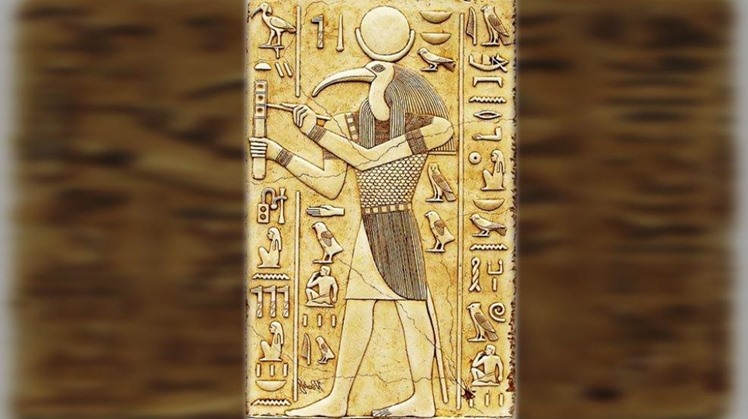Today is the first day of Thoth, and it is the first day in the Egyptian calendar. Thoth or Tut, the god of wisdom at the pharaohs, one of the cosmic lords of Thamun, is considered one of the most important ancient Egyptian deities, and in the coming lines we review everything you want to know about Thoth.
The knowledge of the Egyptians about the calendar, the days of the year, and the months was associated with the god Thoth. Some even called the Egyptian calendar the Tutan calendar.
The first month of the Egyptian year is the month of “Tut” Thoth, Thoth, Tut.
Thoth, Thoth, and Tut are the names of the gods of wisdom, arithmetic and astronomy among the ancient Egyptians.
Thoth is depicted with the head of an ibis.
His main shrine was in Ashmoun, where the main deity was.
The ancient Egyptians considered that the god Thoth was the one who taught them writing and arithmetic.
He is always depicted holding a pen and a tablet writing on it.
He has a key role in the court of the dead, where the dead are brought after the resurrection to carry out the process of weighing his heart in front of the feather of truth Maat.
Thoth records the result of the scale.
If the heart of the dead person is heavier than the feather of truth, then he is one of the sinners and disobedient. He throws his heart at a predatory beast and devours it, and this will be the eternal end of the dead.
If the heart is lighter than the feather of truth, Maat, then this means that the dead person was righteous in this world, and he will enter Paradise in which he will live with his wife and loved ones, after Osiris receives him.
Later the Greeks renamed it Hermes.
The Greeks saw him as an emissary of the gods, just as Hormuz.
The Arabs renamed him Ashmounin, and he was called Al-Moazam 3 times.
In Egyptian mythology, Thoth played many vital and prominent roles.
He is also one of the two gods, the other being (Maat) the female model of Thoth, who stood on either side of the boat of Ra.
He was a god of magic, writing, literature and science, and he also participated in counting the dead.
Thoth occupies an important position in the ancient Egyptian religion.
He links the role of mediator between the gods of good and evil.
His legend says that he experienced 3 struggles between good and evil.
The three struggles were similar in principle, with a change in the combatants according to the time of each legend.
The first battle was the struggle between the god Ra and Abib.
The second battle was the struggle between Heru-Pykhott and West.
The third battle was the conflict between Horus, son of Osiris, and Set.
In these struggles, the first god represented “order” in the universe, and the second gladiator represented the forces of randomness and the loss of order.
When one of the wrestlers is seriously injured, Thoth treats him so that he can return to battle, so that one of them does not overcome the other.
Thoth had other myths among the ancient Egyptians.
He had a role in the myth of Isis and Osiris.
Isis collected the remains of Osiris from all over Egypt under the act of Set, captivating Thoth with words to be able to resurrect him, and to give birth to him after the death of their son, Horus.
The legend attributed to him making the year 365 days, according to the legend, the year was only 360 days.
Nut, the wife of Ra, did not become pregnant or bore him a child during those days.
Thoth bets with the moon on 1/72 of its light and earns (360/72 = 5), 5 extra days.
During those five days, Nut, the goddess of heaven, became pregnant and gave birth to Heru-ur, Horus the Great, the face of heaven, Osiris, Set, Isis, and her sister, Nephthys.
 Sun, Aug. 29, 2021
Sun, Aug. 29, 2021